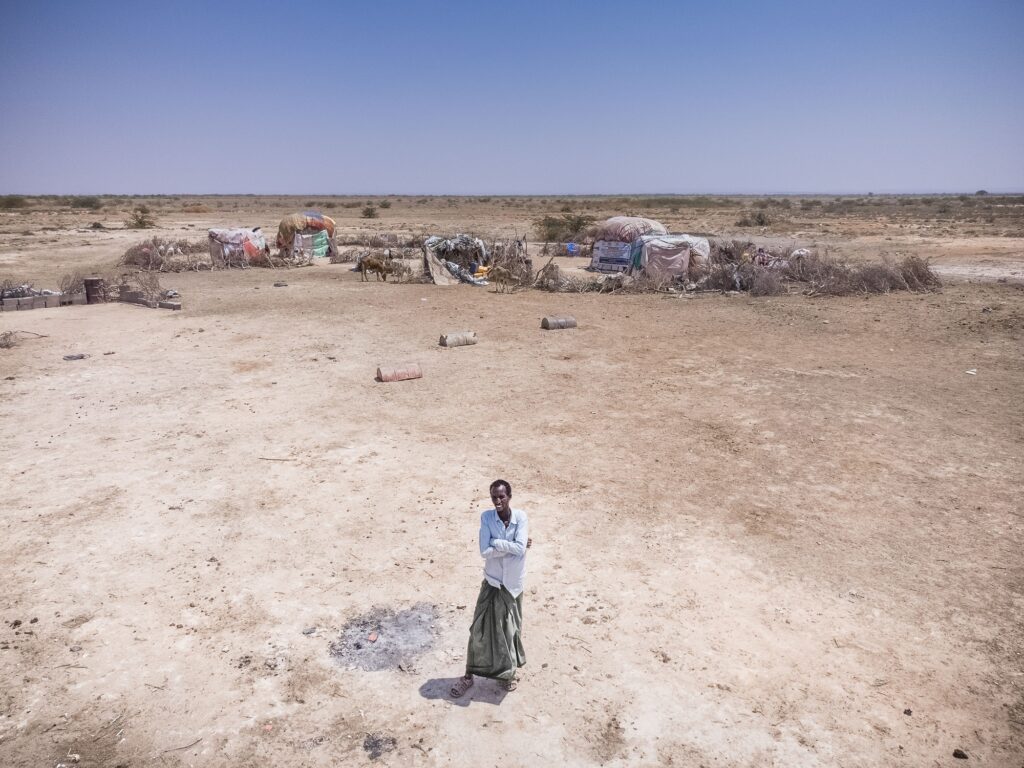A new report outlines the desperate conditions on the ground in drought-ravaged Ethiopia, Kenya and Somalia
One person dies on hunger every 48 seconds in starvation-wracked east Africa, say aid organisations.
A new report outlines the desperate conditions on the ground in drought-ravaged Ethiopia, Kenya and Somalia.
Published by Oxfam and Save the Children, in partnership with the Jameel Observatory, Dangerous Delay 2: The Cost of Inaction highlights the world’s repeated failure to stave off preventable disasters.
It points to a failure, once again, to avert catastrophic hunger in east Africa more than a decade since the delayed response to the famine in 2011 that killed more than 260,000 people in Somalia – half of them children under five.
Today, nearly half a million people across parts of Somalia and Ethiopia are facing famine-like conditions. In Kenya, 3.5 million people are suffering extreme hunger. The number of people experiencing extreme hunger in the three countries has more than doubled since last year – from over 10m to more than 23m.
Yet, urgent appeals are woefully underfunded.
Climate-induced drought, compounded by conflicts forcing people out of their homes, and Covid-19 economic turmoil, has decimated people’s ability to cope. The Ukraine conflict has also driven already soaring food prices to their highest level ever recorded, making food unattainable for millions.
John Plastow, Oxfam GB’s chief impact officer, said: “Despite worsening warning signs over time, world leaders have responded woefully - too late and still too little - leaving millions of people facing catastrophic hunger.
“I recently visited drought-affected areas in Ethiopia and Kenya where I met herders such as Mustafa in Somali Region who had lost all but one of his cattle and even four of his eight hardy camels. People’s health is suffering, many are starting to uproot themselves, scarcity of resources is causing conflict between communities and within households, and the most vulnerable people are already dying.”
Save the Children’s regional spokesperson for East and Southern Africa, Shako Kijala, said: “We’re seeing horrific levels of malnutrition with 5.7 million children currently acutely malnourished. With the UN warning that more than 350,000 could die in Somalia if we do not act, the clock is ticking. Every minute that passes is a minute too close to starvation and possible death of children. How can we live with that if we let it happen again?”
Women are particularly affected as they resort to reducing their own food to feed others and taking on insecure jobs or migrating, placing them at higher risk, especially of gender-based violence.
The crisis is unfolding against a backdrop of crippling national debts that more than tripled in under a decade – from a combined $20.7 billion in 2012 to $65.3bn by 2020 for Somalia, Ethiopia and Kenya – sucking the countries’ resources from public services and social protection and driving them to the edge of bankruptcy.
To make matters worse, just two per cent ($93.1 million) of the current $4.4bn UN appeal for Ethiopia, Kenya and Somalia has formally been funded to date. Although donors promised $1.4bn of aid last month, only $378m of that was new money. Oxfam and Save the Children are calling on the leaders of G7 and Western countries, including the UK, to immediately fund the UN appeal, and ensure the money is flexible enough to be used where it is most needed.

UK aid to the region has almost halved in the past year due to the cut in the international aid budget. In 2017, when 16m people in the region were facing severe hunger, the UK provided £861m as part of the global response which helped avert widespread famine. Despite a higher number of people affected, over the last year the UK has allocated only £219m to the three countries.
The report examines the changes in the humanitarian aid system since 2011. It finds that despite an improved response to the 2017 East Africa drought when widespread famine was averted, the national and global responses have largely remained too slow and too limited to prevent a repeat today. Entrenched bureaucracies and political choices continue to curtail a unified global response, despite improved warning systems and efforts by local NGOs.
East African governments bear their own responsibility for delayed responses - often refusing to acknowledge the scale of the crisis on their doorsteps. The report finds they have not adequately invested in agriculture or social protection systems to help people better cope with the drivers of hunger and urges national governments to prioritize lives over politics. They should be quicker to declare national emergencies as well as shifting resources to those most in need and invest in response to climate related and economic shocks.
The report also sheds light on the continued failure of donors and aid agencies to prioritise local organisations at the forefront of the crisis, which slowed down the response further, even when they were ready to act.







